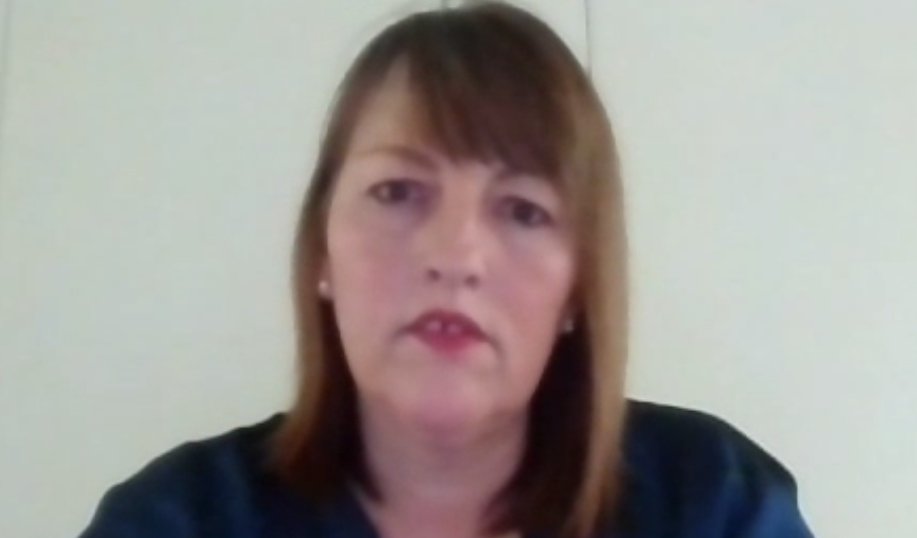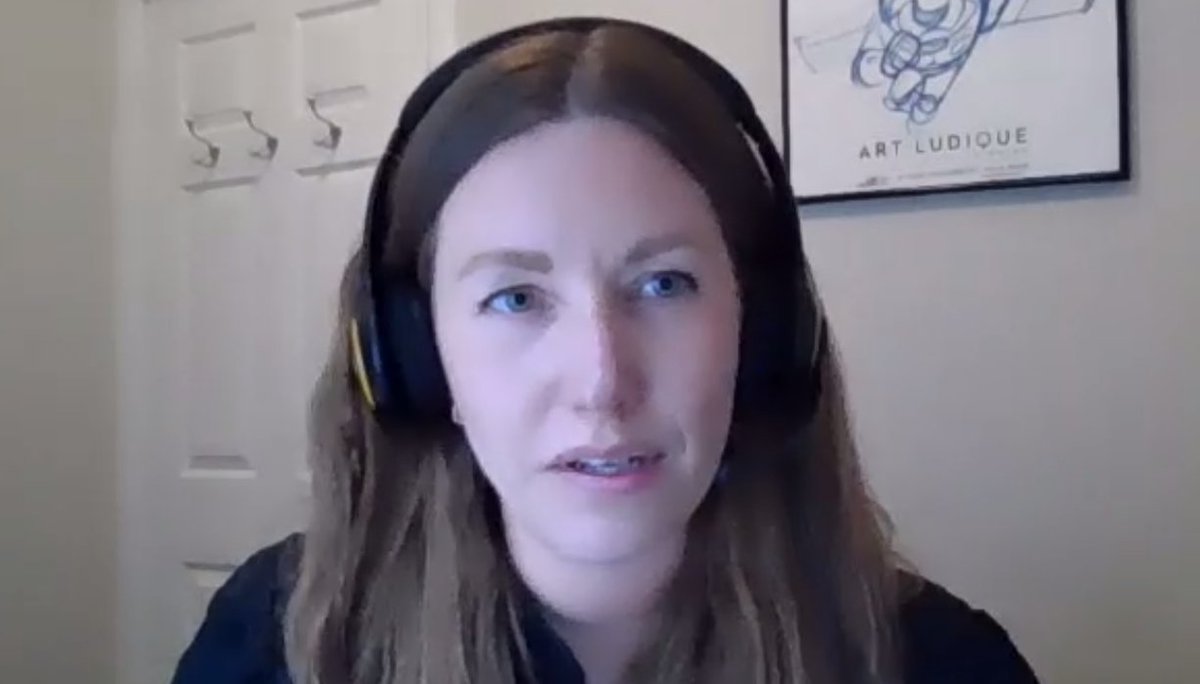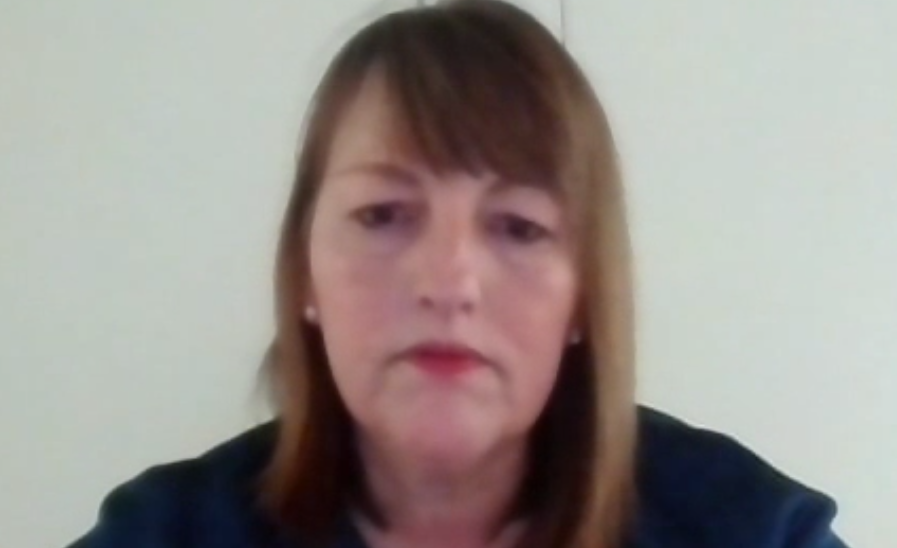Our Fixing Fashion meeting at 2.30pm today examines how @WRAP_UK& #39;s new sustainability targets for industry and @DefraGovUK policy could put the UK fashion industry on a path to greater circularity and net zero carbon.
#Textiles2030 #NetZeroFashion https://twitter.com/i/broadcasts/1nAKELymZbnxL">https://twitter.com/i/broadca...
#Textiles2030 #NetZeroFashion https://twitter.com/i/broadcasts/1nAKELymZbnxL">https://twitter.com/i/broadca...
Nicole Bassett, @renewalworkshop: "Renewal workshop take products that are damaged or returns then cleans, repairs, and relabels them for resale. There are huge business opportunities in recommerce. Depop has seen 160% growth in traffic. Renewal Workshop has seen 30% growth"
Katharine Stewart, @Primark: "We set up a model slightly different from other cotton initiatives… the farmers go through a 3-year programme to help them understand how to grow more cotton with less - specifically less chemical pesticides and fertilisers, and less use of water."
Catherine Salvidge, @WRAP_UK: "We want to encourage brands and retailers to set up take back schemes so that we can collect more textiles to divert from it from going to landfill or incineration."
 https://abs.twimg.com/emoji/v2/... draggable="false" alt="📺" title="Fernsehen" aria-label="Emoji: Fernsehen">watch at https://bit.ly/3dZHdC5 ">https://bit.ly/3dZHdC5&q...
https://abs.twimg.com/emoji/v2/... draggable="false" alt="📺" title="Fernsehen" aria-label="Emoji: Fernsehen">watch at https://bit.ly/3dZHdC5 ">https://bit.ly/3dZHdC5&q...
Catherine Salvidge, @WRAP_UK: "Government should fund research into microfibre shedding, so that the information is publicly available."
 https://abs.twimg.com/emoji/v2/... draggable="false" alt="🔍" title="Nach links zeigende Lupe" aria-label="Emoji: Nach links zeigende Lupe">full details of witnesses at https://bit.ly/3sHFGF4 .">https://bit.ly/3sHFGF4&q...
https://abs.twimg.com/emoji/v2/... draggable="false" alt="🔍" title="Nach links zeigende Lupe" aria-label="Emoji: Nach links zeigende Lupe">full details of witnesses at https://bit.ly/3sHFGF4 .">https://bit.ly/3sHFGF4&q...
Katharine Stewart, @Primark: "What we put in place once we& #39;d taken the difficult decision to cancel orders in March 2020 was to set up a wages fund. That was paid within 6-8 weeks from the cancelled orders."
Katharine Stewart, @Primark: "We have a team on the ground in #Myanmar and 45,000 garment workers in supplier factories. We& #39;re continuing our orders there, but monitoring the situation. We are also paying careful attention to advice from the UK Government and @IndustriALL_GU."
Katharine Stewart, @Primark: "We’ve got our largest team on the ground based in Shanghai, who are monitoring factories, and we have increased the number of audits we do there to every 6 months as a minimum, to make sure we have the right level of oversight to what& #39;s going on."
Cat Salvidge " @WRAP hope that @DefraGovUK& #39;s textiles Extended Producer Responsibility scheme focuses on carbon emissions and circularity; promoting change in garments& #39; design processes, incentivising recycled content and feeding investment in fibre-to-fibre recycling industry."
On to panel 2, Joe Papineschi of @Eunomia_RandC:
"We can& #39;t recycle our way out of what textiles contribution to net zero needs to be. We& #39;ve got to reduce consumption of materials very substantially. We& #39;re talking about one of the highest emitting product categories."
"We can& #39;t recycle our way out of what textiles contribution to net zero needs to be. We& #39;ve got to reduce consumption of materials very substantially. We& #39;re talking about one of the highest emitting product categories."
Wayne Hubbard, @ReLondon_UK: "the quality of clothing collected in banks is higher than that in kerbside collections, and some local authorities have kerbside collection so that they can maintain a high quality in clothing banks"
 https://abs.twimg.com/emoji/v2/... draggable="false" alt="📺" title="Fernsehen" aria-label="Emoji: Fernsehen">watch at https://bit.ly/3dZHdC5 ">https://bit.ly/3dZHdC5&q...
https://abs.twimg.com/emoji/v2/... draggable="false" alt="📺" title="Fernsehen" aria-label="Emoji: Fernsehen">watch at https://bit.ly/3dZHdC5 ">https://bit.ly/3dZHdC5&q...
Wayne Hubbard, @ReLondon_UK "Exporting clothes to developing country markets in the global south is simply not sustainable. We need to develop more circular business models."
Maude Hardy, @RefashionEcoorg "the more textiles you collect, the less you can reuse" https://twitter.com/i/broadcasts/1nAKELymZbnxL">https://twitter.com/i/broadca...
Wayne Hubbard, @ReLondon_UK: "The linear way of producing clothing and textiles, and in fact goods in general, is reaching its end... its not sustainable, we need to move to circularity."
Maud Hardy, @RefashionEcoorg: "We invested in a mechanical recycling and sorting facility. It automatically sorts 20,000 tonnes of textiles per year and cost €20mill. Overall textiles we have to recycle is more than 100,000 tonnes. So that& #39;s an idea of the investment needed."
Maud Hardy, @RefashionEcoorg: "We have to address open loop recycling as an emergency in Europe. We have to consider that our used textiles are perfect material for insulation, for the car industry, the plastic industry, for all those sister industries that very much- (1/2)
"welcome our used textiles because this is a way for them to stop using virgin material. We have to focus on these opportunities that we have… our waste, textile and footwear can be a fantastic new material for those industries." (2/2)
. @Eunomia_RandC: "Textiles is maybe as much as a third of our consumption emissions in the UK. That& #39;s why we need to be thinking when we design these policies. We need to work back from our net zero carbon objective. What is the textiles footprint we can afford in the UK?"
Maud Hardy, @RefashionEcoorg: "We know some brands are not doing the ecomodulation paperwork because it is too consuming, this will change because the contribution is going to be higher every year, and we are going to move from 1 cent per unit… " (cont)
this will multiply by 3, 4, 5, maybe 10 in coming years because we will need to support the real cost of the recycling industry we want to build. Today we are not financing the cost of the recycling industry because the reuse part- the profitable part- balances the cost. (cont)
But tomorrow, if we want to be able to collect and sort the entire quantity of tonnage of products that we are placing on the market, we will have to build this industry, and this will cost a lot of money and the brands will have to pay for it" (end)

 Read on Twitter
Read on Twitter

 watch at https://bit.ly/3dZHdC5&q..." title="Catherine Salvidge, @WRAP_UK: "We want to encourage brands and retailers to set up take back schemes so that we can collect more textiles to divert from it from going to landfill or incineration."https://abs.twimg.com/emoji/v2/... draggable="false" alt="📺" title="Fernsehen" aria-label="Emoji: Fernsehen">watch at https://bit.ly/3dZHdC5&q..." class="img-responsive" style="max-width:100%;"/>
watch at https://bit.ly/3dZHdC5&q..." title="Catherine Salvidge, @WRAP_UK: "We want to encourage brands and retailers to set up take back schemes so that we can collect more textiles to divert from it from going to landfill or incineration."https://abs.twimg.com/emoji/v2/... draggable="false" alt="📺" title="Fernsehen" aria-label="Emoji: Fernsehen">watch at https://bit.ly/3dZHdC5&q..." class="img-responsive" style="max-width:100%;"/>


 watch at https://bit.ly/3dZHdC5&q..." title="Wayne Hubbard, @ReLondon_UK: "the quality of clothing collected in banks is higher than that in kerbside collections, and some local authorities have kerbside collection so that they can maintain a high quality in clothing banks"https://abs.twimg.com/emoji/v2/... draggable="false" alt="📺" title="Fernsehen" aria-label="Emoji: Fernsehen">watch at https://bit.ly/3dZHdC5&q..." class="img-responsive" style="max-width:100%;"/>
watch at https://bit.ly/3dZHdC5&q..." title="Wayne Hubbard, @ReLondon_UK: "the quality of clothing collected in banks is higher than that in kerbside collections, and some local authorities have kerbside collection so that they can maintain a high quality in clothing banks"https://abs.twimg.com/emoji/v2/... draggable="false" alt="📺" title="Fernsehen" aria-label="Emoji: Fernsehen">watch at https://bit.ly/3dZHdC5&q..." class="img-responsive" style="max-width:100%;"/>


